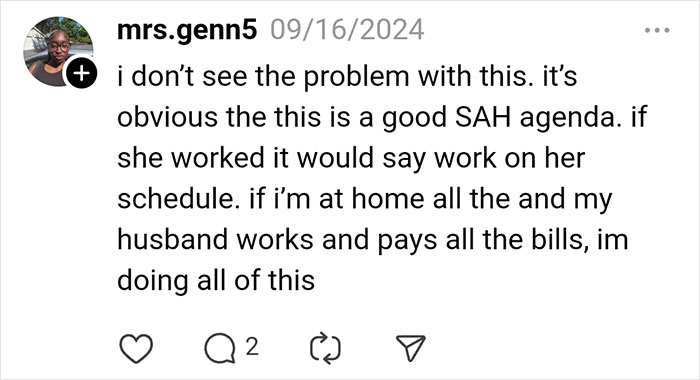Having a set schedule for the day can lead to a more productive day for many people. Most people have at least a morning routine; in fact, the Harvard Business Review found that 97% of people say that they do. There’s one crucial element, though: a person has to want it.
Recently, there’s been a certain list circulating online. Titled “Lisa’s Daily Routine for Becoming a Better Wife”, it has taken the internet by storm. People on many different social media platforms, from Threads to TikTok and Reddit, are reacting to it. And – spoiler alert – many are pretty furious about it.
People online are reacting to a list a husband supposedly made for his wife about how to be a good wife

Image credits: Anastasia Shura / pexels (not the actual photo)
It describes a strict daily routine where the wife’s duties are more similar to a maid’s or a cook’s than an equal partner’s
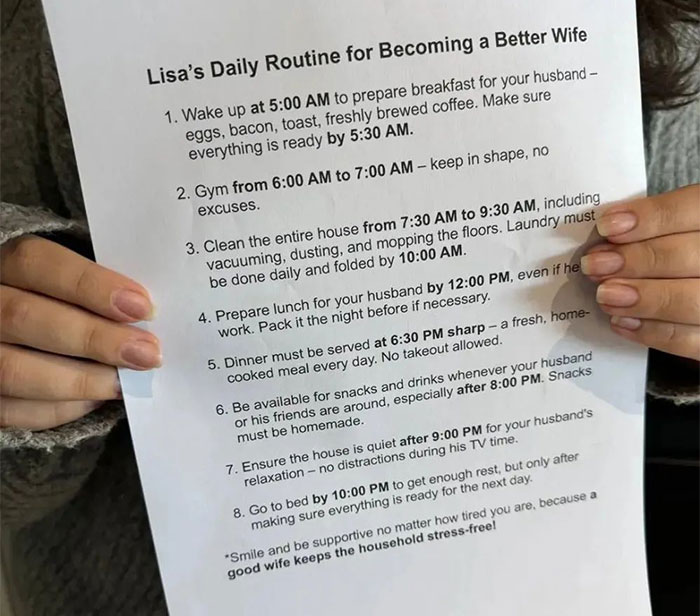
Image credits: authoress_rosy_library
Many people couldn’t tell if this was real or rage-bait, yet they still called out the absurdity of the list
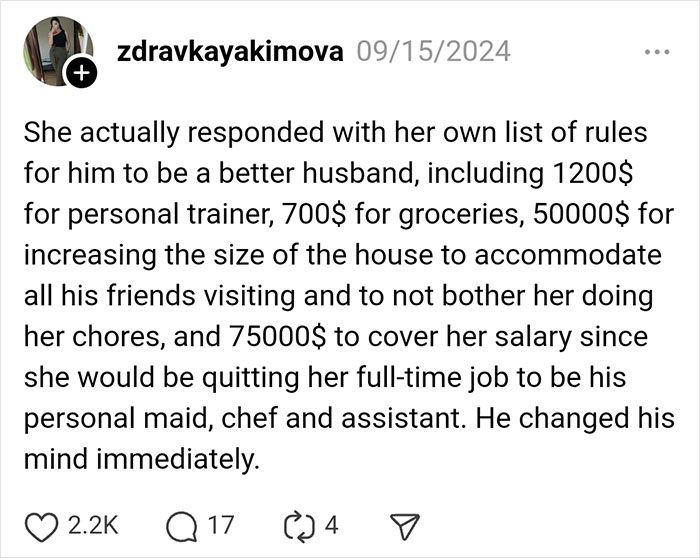






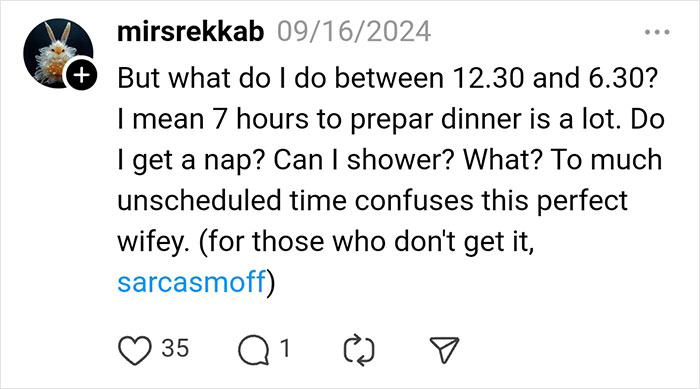
























“Lisa” and her list of rules might not be real, but they did spark a heated conversation online
The list first started making rounds online when Rosy Johnson, who goes by @authoress_rosy_library, posted it on Threads. Shortly after, the entertainment website Amomama picked the story up and one of their writers came up with a fictional story inspired by the post. In the story, “Lisa” gets back at her husband by coming up with her own list of rules for her husband, “Jake.”
But there’s no way to know where the list came from originally. Other media outlets claimed that a mother-in-law made the list instead of a husband. Eventually, TikTokers began to react to the list, and, when people started asking who’s Lisa and where the list came from, some speculated that someone just posted it online for discussion’s sake.
On Reddit, the list ended up on two very different subreddits in terms of their ideology: the r/tradwives and the r/NotHowGirlsWork communities. In the latter, netizens ripped the daily routine and the supposed “husband” to shreds.
Surprisingly, the reaction at r/tradwives was lukewarm as well. Many folks pointed out how, even if the list is real, it isn’t an accurate representation of a loving relationship. “The idea of a loving partnership in marriage with a wife that manages the home while the husband brings the income really has nothing to do with dominance, control, or submission at the end of the day,” user u/sourisanon wrote.

Image credits: Gülşah Aydoğan / pexels (not the actual photo)
Fewer women want marriages with traditional gender roles nowadays
With all the housework the wife supposedly has to do in the routine, it’s clear that the rules rely heavily on gender roles. And while it’s true that most of the domestic housework still falls on the shoulders of women, many people (as evident from the reactions in the comments) don’t take well to these types of misogynistic posts.
In a previous article, we spoke with life coach and educator Laura Danger about the reasons why housework is so feminized. She said it’s all about how we’re socialized to assign certain types of work to either men or to women.
“The social messaging that men should define themselves through work and women should define themselves through care and domestic labor is loud!” Danger explained. “Housework is seen as women’s work, so women are taught to do it, encouraged to do it well, and are judged on it.”
“Even if you’re not explicitly taught that your job is to do housework, the messaging is loud and clear in the media and in so many other aspects of our culture that women are innately better at housework,” Laura pointed out. “It’s simply not true. Domestic work is skilled work. Gender has nothing to do with how well someone does it. It’s learned.”
This is often the reason why many women nowadays opt not to marry at all. The sacrifices they would have to make don’t outweigh the joys and benefits they would be getting from marriage. Brooklyn-based psychotherapist Tonya Lester, LCSW, writes: “If she’s already bringing in an income, is still doing most of the housework and childcare, and doesn’t feel seen or understood by her partner, she may tally the reasons to stay and come up short.”
“Women expect emotional care and empathy. A partnership devoid of emotional intimacy no longer feels worth the sacrifices that come with any long-term relationship.”

Image credits: cottonbro studio / pexels (not the actual photo)
Even the folks at the Trad Wives subreddit didn’t think the daily routine was appropriate
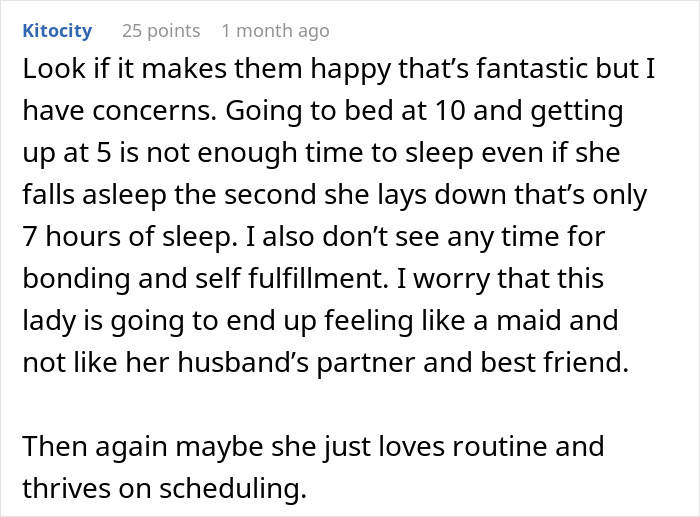





However, a few people didn’t think it was that bad
